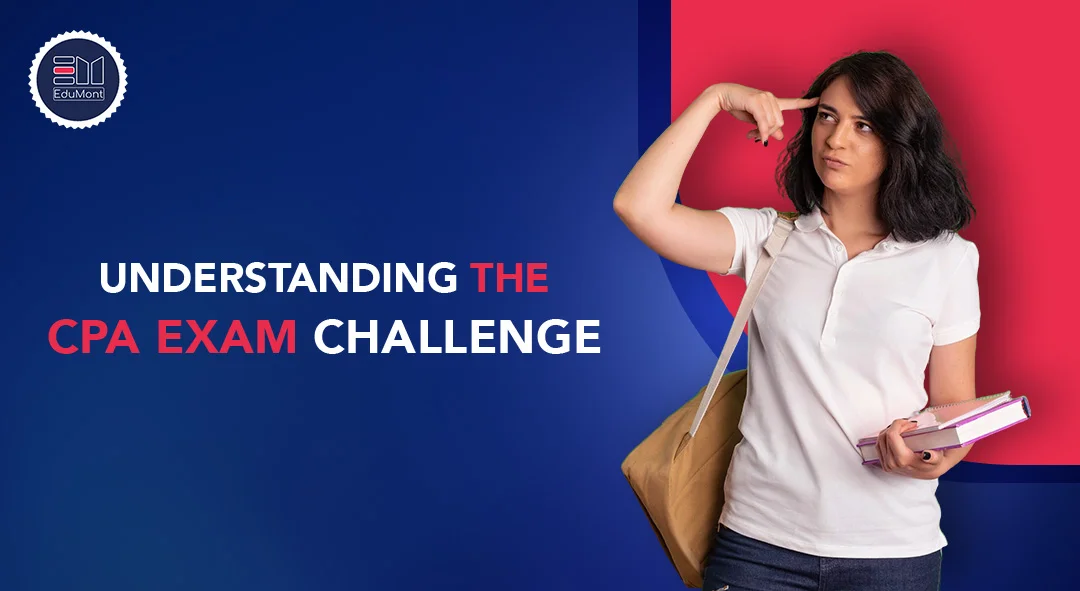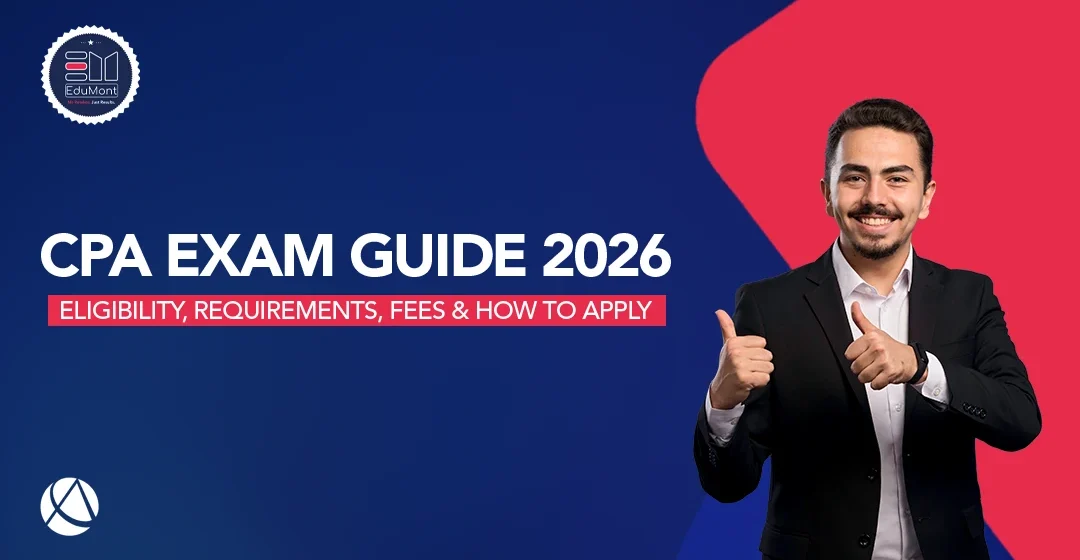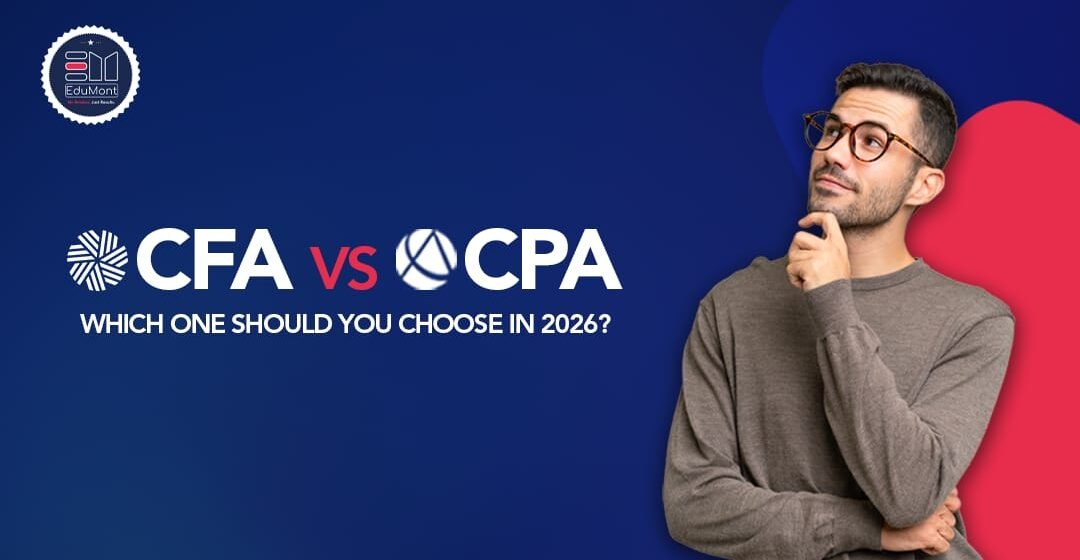Let’s start by understanding the following:
- Exam Pattern
- Skills Tested
- Grading Structure
1 The Exam Pattern
The Exam is a rigorous assessment of the accounting knowledge and skills that are directly connected to the work of a CPA. Before you begin your CPA journey, it’s important for you to learn the basics about the exam. Let’s first look at the 3 types of questions we see on the CPA Exam:
a) Multiple-Choice Questions
These are the most common forms of questions in the CPA Exam. MCQs give you four options to choose from. Three of these choices are there just to distract you from that one right answer. They can be tricky to solve because answer choices are based on common errors or misconceptions. However, you can’t spend a lot of time on any one question.

b) Task Based Simulation
These are case study type questions. Task Based Simulations are also objective type questions, like the MCQs. However, in a TBS there could be multiple sub-questions and more than 4 sub-choices. TBS’ focus on real-life tasks expected from a CPA such as research, document correction, financial schedule/documents/statement preparation, etc. These are few in number but are (read: can be) time consuming to solve completely.
c) Written Communication Tasks
In addition to multiple-choice questions (MCQs) and task-based simulations (TBS), the BEC evaluates a candidate’s ability to respond to real-life situations through written communication. These tasks require you to craft business memos and are graded based on how effectively you use your writing skills to address the designated audience in a business-like manner.

Each section is divided into smaller groups of questions called Testlets. There are 5 Testlets in each exam and 4 total exams of 4 hours each i.e. 4×4=16 hours of testing. The first 2 Testlests are always MCQs while the last 3 Testlets are usually TBS’, except in the case of BEC, where Testlet 5 tests WCTs.
Which type of question is the most challenging?
Now that you are familiar with the pattern of the CPA Exam, you should also understand what type of questions can be strenuous.
- i) MCQs require critical thinking – especially when answers are very similar to each other,
- ii) Written Communication requires a lot of time to read and formulate the answers
iii) Task Based Simulations can be very challenging, especially Document Review Simulations (DRS) and Computational TBSs which may require multiple calculations.
Which section of the CPA Exam is the most daunting of all?
Even though your individual choice may vary, usually, REG is considered the most advanced by the majority of the students. Regulation or REG mainly focuses on Federal Income Tax, Business Laws and Ethics. It is the only exam that does not cover accounting specifically.
Regulation does pull some information from other exams but it mainly focuses on tax and business law. This exam is majorly tax-based and is a good exam to take first or last as it mostly stands on its own.
2) Skills Tested In The CPA Exam
The CPA exams test analytical and critical thinking skills. The skills tested in the descending order are:
- Evaluation
- Analysis
- Application
- Remembering
This order and emphasis of skills to be tested is provided by AICPA’s CPA Exam Blueprint which is the only official syllabus document. Given that memory is the least tested skill and that Evaluation is the most tested skill, the focus of the CPA exam is very different from that of our Indian exams.
3) Grading Structure
The CPA exam is a computer adaptive exam that is divided into 5 testlets or groups of questions. Your performance in the 1st testlet will determine the level of difficulty of the 2nd testlet, so on and so forth.
The exam score is determined on a scale of 0-99 by two factors:
i) The % of accuracy
ii) The level of difficulty achieved
There is no negative marking for getting an answer wrong. However, you do get extra weight for answering a difficult question correctly. A candidate needs to achieve 75 or above on the scale to pass the exam.
What makes the CPA Exam so gruelling?
There are several factors that make the CPA Exam extremely difficult. One of them is that it covers a wide variety of topics at different skill levels as a part of the CPA schedule It has been seen by most people that the vast amount of information covered in the exam is the primary reason for its difficulty as it requires a substantial amount of study and preparation. Each section of the exam has a variety of questions, time-limitations and multi-stage difficulties.
To Sum It Up…
People who become CPAs experience difficult exams because if you do well in the starting testlets the level of difficulty increases. However, the more complex your exam is, the higher are your chances of passing. This is because you get extra weight when you answer difficult questions correctly but don’t lose any marks if you get it wrong.
At EduMont, we understand that exams will only become more intricate as competition intensifies. However, with a dedicated teacher guiding you through each section, the process becomes easier over time. As Nelson Mandela aptly said, “It always seems impossible until it’s done.” Once you achieve it, you’ll know how to conquer it. Let’s tackle this journey together!









